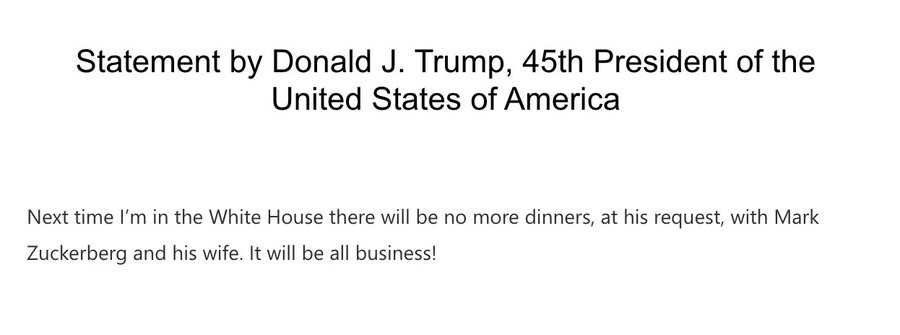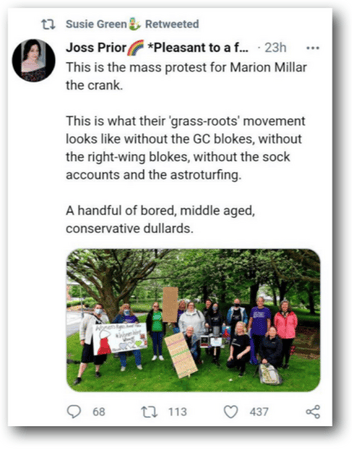Even TIME is issuing Gender Instructions.
It’s only been a week since Katherine Locke’s newest book was published, and they’ve already received messages from parents of trans and nonbinary children saying how much it spoke to them.
The very first sentence, and already we see what a dog’s breakfast bespoke pronouns can create. Who is the first they? Who is the second? You’ll just have to guess!
The book, What Are Your Words?, tells the story of a kid named Ari, who is gender fluid and nonbinary and tries out different pronouns depending on how they feel on different days.
Why is this kid both gender fluid and nonbinary? And why is TIME repeating this nonsense with a straight face? Why are they telling us people have different pronouns depending on how they feel on different days?
Aimed at readers aged 4 to 8, the book follows Ari and his nonbinary uncle Lior as they try to figure out what words fit them.
How can uncle Lior be nonbinary when he’s an uncle? Or, to put it another way, how can uncle Lior be an uncle when he’s nonbinary? Also whoops TIME slipped up and said “Ari and his nonbinary uncle” – whoops whoops whoops ten years in the gulag for TIME.
With colorful illustrations by Anne Passchier, the book emphasizes that pronouns are one part of a full identity, as Ari introduces Lior to their neighbors and shares each person’s pronouns, occupation and adjectives to describe them. Locke was keen to highlight the bigger picture of people’s full humanity beyond gender identity as well as focus on Ari’s words and feelings about their words, rather than labeling their gender on the page.
Pronouns are not “part of a full identity,” whatever that is.
How are so many adults toppling for this childish blither when it took years and years for civil rights and feminism to get even a toehold in the mainstream?
These new releases, as well as Locke’s latest title, come amid a record year of anti-transgender legislation across the U.S., with 33 states introducing more than 100 bills largely targeted at rolling back the rights of trans youth.
That’s a lie.
TIME asks the author why now.
Locke: It felt like the right time to start having these conversations for a younger audience. I really wanted to tell it through a narrative with a character, versus something that was more teaching. I wanted to give kids the opportunity to see themselves in Ari, or to see Ari as a friend. I use they/them, I’m nonbinary. Anne Passchier, who is the illustrator, is also nonbinary and uses they/them, so it was a really personal project for the two of us. We’re really proud to be sharing our story with everybody.
Don’t be. Be embarrassed, instead.
She goes on:
I think that the growth of gender identity books for kids is really great. Kids are more likely to understand a wide spectrum of gender, whereas we as adults kind of lose that skill as we grow up.
No, that’s not what that is. It’s the other way around. Kids are new to the world, so they’re learning everything from scratch, so you can tell them any old bullshit. Adults have more cognitive tools for recognizing bullshit when we see it. We don’t lose a skill of believing whatever people tell us, we develop a skill of being cautious about what people tell us. “Nonbinary” Katherine Locke’s book is an effort to brainwash children.
It’s really important that we normalize asking about pronouns because some people pass, some people’s presentation may not match your idea of what their presentation is, may not match their gender identity and their pronouns. I have really long hair right now, and lots of people use she/her for me, but she/her are not my pronouns.
Oh get over yourself.
Misgendering is a really painful experience, and it’s hard to describe to people who haven’t experienced it. There’s a tightness that comes to it. I tried to get that across in the book, when Ari describes how different pronouns feel, they just don’t feel right, they feel tight, and they feel itchy, and they just don’t feel good to them in that moment.
Because they’ve been trained to feel that way – by credulous fools like Katherine Nonbinary.
To hear people use they/them for me, despite the octave of my voice, and the length of my hair, feels like someone is really seeing me and understands me, and respects me in a way that I didn’t realize I needed before I started using “them,” which was about three or four years ago now. It’s a very welcoming feeling, it releases this anxiety, and it allows people to be the most creative, productive and mentally well that they can be.
Great, now imagine how creative and productive they could be if we called them Your Royal Highness.
TIME includes suicide information at the end of the piece.
H/t GW



